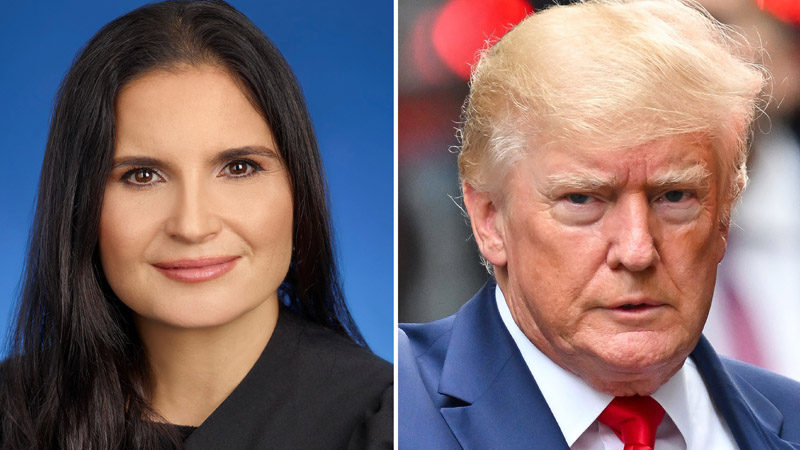In a significant legal development that has captured national attention, U.S. District Court Judge Aileen Cannon issued an order that has effectively postponed the possibility of former President Donald Trump facing trial in July over allegations of mishandling classified documents.
This case, which has stirred considerable public and media interest, centers on accusations that Trump improperly managed sensitive government documents. Judge Cannon’s recent directive specifies that Trump is granted until May 9 to identify the classified documents he intends to utilize in his defense.
This decision marks a deviation from the timeline proposed by special counsel Jack Smith, who had suggested March 18 as the deadline for Trump to submit his notice pursuant to Section 5 of the Classified Information Procedures Act (CIPA). This Act outlines the procedures for handling classified information in the context of legal proceedings, ensuring that sensitive information is adequately protected while allowing for a fair trial.
The extension granted by Judge Cannon has sparked discussions among legal analysts and observers. Hugo Lowell, a reporter for The Guardian, highlighted the implications of this decision on the timeline for the trial. Lowell noted that while it is customary in national security cases to provide defendants with several weeks to prepare their Section 5 notice, the May 9 deadline could potentially delay the trial proceedings.
This adjustment in the schedule may pose challenges for the Special Counsel’s office, which had aimed for a July 2024 trial date. The charges Trump faces are serious and numerous, totaling 37 criminal counts related to the unauthorized retention of classified documents at his Florida estate following his departure from office in 2021. These charges encompass a range of alleged offenses, including violations of the Espionage Act, conspiracy to obstruct justice, and making false statements to federal investigators.
The allegations under the Espionage Act are particularly severe, with 31 counts that, if proven, could result in substantial prison sentences, potentially amounting to up to 10 years for each count. The legal proceedings against Trump have garnered widespread attention, not only due to the high-profile nature of the defendant but also because of the implications these charges may have on issues of national security and the handling of classified information.
As the case unfolds, it raises important questions about accountability, the protection of sensitive government information, and the legal challenges involved in prosecuting cases that involve classified materials. As of now, Judge Cannon has not established a new date for the trial, leaving observers and participants in the case awaiting further developments. The decision to extend the deadline for Trump to disclose his defense strategy underscores the complexities and legal intricacies involved in this high-stakes legal battle.



